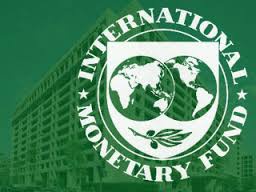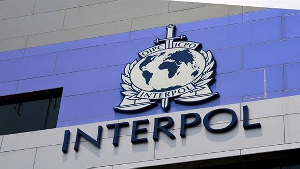...Public sector labour freeze costs Gov’t 1billion dollars
Ghana’s, dependence on donor-fundings, and their attendant conditionalities, for the implementation of her fiscal policy year in and out, is beginning to take a heavy toll on the country.
News about the recent International Monetary Fund (IMF)’s $1billion total financial facility to Ghana for her budgetary support, as approved by its board on July 15, 2009 came just a day after the Attorney General, Hon. Betty Mould Iddrissu had disclosed that Government of Ghana (GOG) owes as much as over $1 billion dollars in judgment debts which have accumulated over the past 10 years.
She explained that the problem boils down to the fact that, the attorney general’s department lacks the human resource capacity to function adequately as government’s legal advisor in all transactions government enters into.
According to her, “Ghana lacks the capacity to retain attorneys for all Ministries, Departments and Agencies (MDAs), so out of frustration, the MDAs hire private legal practitioners to guide them in some of their transactions, some of which bring about legal problems.
“The department also lacks the requisite manpower to send attorneys to court to defend the state whenever those litigations come up”, she disclosed, adding, “it is a systemic and an endemic problem with the department which has been there over the years”
For this reason, government is now saddled with such a huge debt including those to CP Construction, Attachment Awards against the government in France, Britain Belgium, USA and Holland.
It has been suggested that the genesis of the problem of the lack of human resources in the public sector dates back to the late 1980s and 1990s when government was instructed to freeze public sector recruitments in return for World Bank/IMF supported Economic Recovery Programmes.
This same condition, of freezing public sector employments, is said to have been reaffirmed by the Breton Woods institutions in the current loan agreements, but Finance Minister explains it is government’s own decision to manage public funds prudently.
However another contradictory condition is also the call on government to establish a Public Sector Reform Ministry as a requirement for further assistance from the World Bank. Opinions are divided as to where manpower would be secured to run such a new ministry if recruitments into the public sector is to remain frozen.
Although Finance Minister, Dr. Dufuor has told this reporter that the AG’s department has been given the clearance to recruit 20 new attorneys, Financial Intelligence (FI) investigations have revealed that the problem of inadequate manpower is not peculiar to the Attorney General’s Department, but a general problem that has bedeviled the whole of the Civil Service in Ghana.
Departments such as the Veterinary Department, Extension Services of the Ministry of Agriculture and other government departments have been crying over the years for more personnel to be recruited to beef-up their activities.
For the Crop Extension Services and Veterinery Services, although their training schools in Kwadaso, Nyankpala, Ohawu, and Pong-Tamale have been churning out well-trained personnel over the years, due to World Bank conditions that were introduced as a result of the Economic Recovery Programme and The Structural Adjustment Programmes, employments of these personnel have remained frozen till date, leaving the departments with the only other option of replacing retiring and diseased staffs.
The Cocoa Services Division is on record to have attracted a large number of extension officers from the Agric Ministry, while engaging many others who had either completed the Agric Training Institutions as well as some Sixth Form leavers from the early 1990s, and current gains being made in that sector is believed to be as a result of those investments earlier made in human resources.
Questions are being raised as to whether it is prudent to continue freezing recruitments into the public sector, when evidence has started emerging that it can be costly in the long run as evidenced by happenings at the AGs department.
If the MDAs can find money to hire the services of private legal practitioners whose legal advice in transactions have proven to be costly to the nation, it would have been better if the state spent money employing full time attorneys for the AG’s department, for onward attachment to the MDAs.
A senior Lecturer at the University of Ghana Business School, Kwame Gyasi believes that the problem of manpower in the public sector is multifaceted, and needs to be analysed as such.
To him, if in developed countries “it is the public sector which moves the private sector and not the vice-versa, then; there is a problem if you freeze employment in the public sector down here”.
“Now that the private sector is collapsing, freezing employments in the public sector would not only end up in some costly financial consequences for the state as has happened in the judgment debts, but will also create upheavals”
He criticized the notion that people should create their own jobs immediately they leave school, saying, “That is easier said than done”.
“We have mismanaged ourselves”, he said, lamenting that people in leadership lack the intellect to think through problems and arrive at adequate solutions, for which reason they accept all these suggestions from donors without considering the consequences.
Mr. Gyasi believes there is the need for a manpower audit in the public sector to see the quality and quantity of people needed to run an effective public sector.
However Kofi Bentil of Imani Centre for Policy Education and a lecturer at Ashesi University College believes the public sector is over-bloated and needs to be down-sized.
“There are people who are too old to function and we are paying people who are doing no work”, he said.
General News of Monday, 20 July 2009
Source: Financial Intelligence (Justice Lee Adoboe)
Ghana trapped in World Bank/IMF Vicious Cycle

















